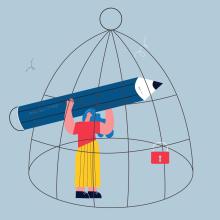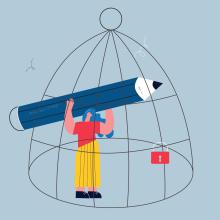Op-ed: Unlocking the full potential of women
Nearly halfway to the 2030 endpoint for the SDGs, it is time to turn our interconnectedness into solidarity in shaping our responses and invest intentionally—and better—in women and girls. Currently, despite progress, only 26 per cent of countries have a comprehensive system to track gender budget allocations.
Recent research published by UN Women reveals what to target for action. Women’s representation in positions of power and decision-making remain below the parity threshold with just 26.4 per cent of parliamentary seats globally, and 28.3 per cent of managerial positions. COVID-19 had a devastating impact on women’s economic opportunities and labour force engagement. Pandemic-related school and day care closures in 2020 led to women doing an estimated 512 billion more additional hours of unpaid childcare globally, curtailing their opportunities for paid work. In 2022, women’s employment rates have still not recovered to pre-pandemic levels in most countries. Today, more than 380 million women and girls live in extreme poverty, on less than USD 1.90 a day.
The global population of forcibly displaced women and girls has reached record levels—44 million—and faces exposure to even greater risks of violence, trafficking and sexual abuse. Meanwhile in homes around the world, one woman or girl is killed every 11 minutes by someone (almost always a man) in her own family.
The worst affected
Across all regions, women are more food-insecure than men, with nearly one in three women experiencing moderate or severe food insecurity in 2021. This year, our analysis has shown the further gendered impacts of the Ukraine crisis on energy access, food security and nutrition. As food, fuel and other prices climb, the consequences of women’s lower incomes and limited labour force engagement become harsher, and the situation of many becomes more desperate. As always, it is women living in poverty and the most marginalized who are the worst affected, least visible and among the last to be reached by government action.
Depending on women
Yet the pandemic also demonstrated just how much our future progress depends on women’s skills and leadership. Women sustained their families, staffed our healthcare systems, and invented lifesaving vaccines. As leaders of countries, women instigated some of the most effective responses to the pandemic. And our research found that where women were better represented in governments, and where feminist movements are stronger, crisis response was more gender-sensitive and effective for everyone.
Systemic, gendered crises require systemic, gendered solutions. I urge the G20 to foster this positive trend: centre women’s and girls’ voices, agency, participation, and leadership in all their plans, and invest in and consult with women’s groups and organizations.
Bold measures
I propose the following bold measures.
First, remove all discriminatory laws, policies, and systems that hinder women’s and girls’ full potential in the economy, including in rural and remote areas, and ensure legal and other measures are in place to prevent and respond to violence against women.
Second, expand gender-responsive public services and social protection, including in-kind assistance and food packages, and essential services for women’s health, including for survivors of violence, and sexual and reproductive health care.
Third, invest in the care economy by scaling up affordable childcare services. This creates a triple dividend of supporting women’s labour force participation, generating decent paid care jobs, and preparing children for school.
Fourth, engage the private sector as a key player in hiring, retaining, and promoting women and offering them equal pay. Support women-owned businesses in supply chains and local communities, ensuring gender-responsive investments as called for in the G20 Osaka Leaders’ Declaration.
Fifth, as the United Nations Secretary-General has urged, make good on overdue commitments to mobilize USD 100 billion every year to support developing countries’ climate adaptation and mitigation efforts. Channel resources to women-led initiatives on renewable energy and agroecology to help address the food and fuel crises.
Last, invest in gender and age data and statistics to enable better targeted interventions that reflect the different needs and interests of women in all their diversity.
I ask you to turn our interconnectedness into a strength, through committing to sustained, significant action for gender equality. That is the smartest investment of all, for all.
Article and graphic reprinted with permission from the “G20 Indonesia: The Bali Summit” background book, pp. 126–127.

